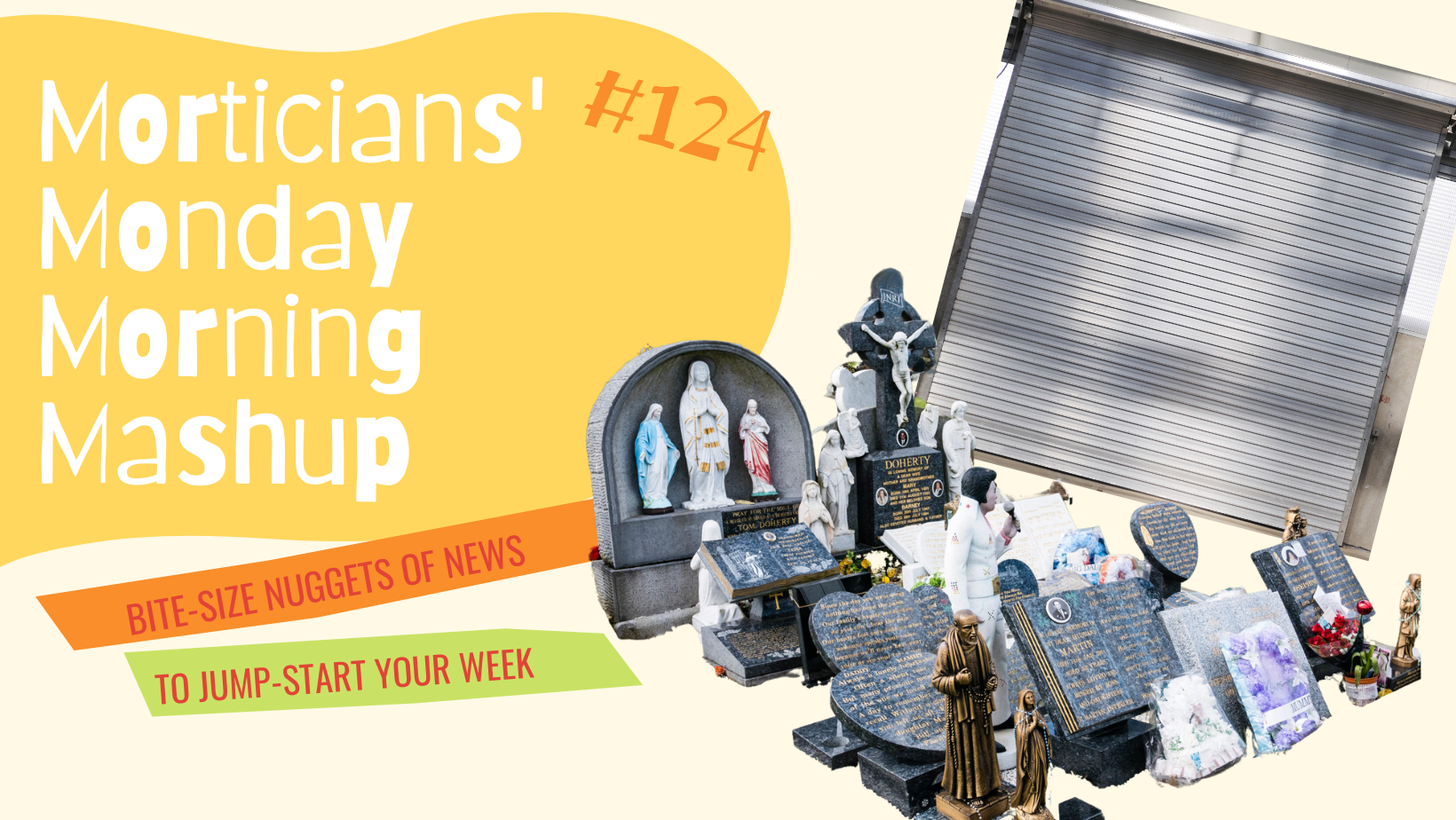Big Doors & Tons of Tombstones | 4M #124
Welcome to the hundred-and-twenty-fourth edition of Morticians’ Monday Morning Mashup, 4M #124, where we’ll serve up bite-sized, easily-digestible nuggets of the deathcare news you need to crush conversations in the week ahead. Bon appetit!
Hallford’s out of jail
Return to Nature co-owner Jon Hallford has paid his $100,000 bond —recently reduced from $2 million — and is out of Colorado Springs jail where he’s been held since being extradited from Oklahoma in November. Hallford’s wife, Carie, who was also arrested after authorities discovered nearly 200 decomposing bodies in the couple’s green funeral home in October 2023, is still incarcerated. Outlets have reported mixed reactions from families who were impacted by the Hallford’s negligence, with most feeling “revictimized” and worried about what Hallford may do outside of the prison bars.
Eternity rooms
Last year we provided you with the public service announcement that the word “mummy” was no longer politically correct (you’re welcome). Well, now museums are “grappling with the ethics of displaying mummified bodies” and are removing or covering displays featuring mummified human remains (the new term) and at least one museum is contemplating changing the name of its Mummy Room to “Eternity Room.” The debate still rages over whether it’s okay to display body fragments, such as “souvenirs by WWI soldiers stationed in Cairo” as long as they are explained.
Get your popcorn ready
Two new similarly-themed documentaries that debuted at the 2024 Sundance Film Festival are giving critics flashbacks to Black Mirror circa 2013. Both Eternal You and Love Machina explore the concept of artificial intelligence and the “digital afterlife.” The former highlights the various start-ups providing these services, while the latter focuses on Bina48, a “humanoid AI owned by futurist couple Bina and Martine Rothblatt, who have modeled the robot’s physical appearance after Bina so they can transfer her consciousness into it.”
Supersized doors
Some families in South Africa are having to pay private crematories for cremation services because the doors on government-run retorts aren’t equipped to accommodate “larger bodies.” This is just one of the problems impacting the people of eThekwini Metropolitan Municipality. Although the city’s facility is equipped with two incinerators, only one works, and they don’t have the funds to repair the other. Private providers are appealing to the government to allow privatization of the facility so improvements can be made.
That’s a lot of adjectives
Now this is the way to sell plots: Golden Haven, a “premium memorial park developer and deathcare services provider” in the Philippines, recently gathered its 2,000 brokers and agents for “The B.I.G. Reveal” — a Bolder, Indispensable, Grand Reveal.” During the sales meeting, salespeople were given a “shot at winning 55-inch smart TVs through an electrifying raffle” and “brand-new smartphones were organized as giveaways at different branches.” To top it off, “Golden Haven enthusiastically announced another ‘thriller’ staging” to “empower sellers to reach a global audience without borders.” So is the key to selling more burial property really TVs and smartphones?
Gaudy gravestones
A cemetery in Ireland is not at all happy with some of the monuments being erected — sometimes under the cover of night. Local authorities describe them as “enormous, enormous marble structures” with an overpowering “scale and mass,” costing up to €119,000 (about $129,000). Many of the graves belong to members of the Irish Travellers community, a nomadic indigenous ethnic group with deep religious traditions for honoring their dead.




